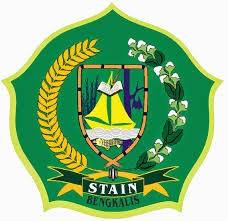Peran Pembina Asrama dalam Meningkatkan kedisiplinan Santriwati di Asrama I Pondok Pesantren Bequranic Bengkalis
DOI:
https://doi.org/10.56633/kaisa.v4i2.614Keywords:
dormitory, supervisorAbstract
This type of research is descriptive qualitative, and uses field research. The data source for
this research is the female students of dormitory I at the Bequranic Bengkalis Islamic Boarding
School, which consists of 111 female students. Furthermore, data collection in this research used
systematic sampling techniques and the results of data collection in this research were analyzed
using qualitative data analysis techniques. Based on the research findings, it can be concluded that
the results of this research are in accordance with the problem formulation, namely the role of
dormitory supervisors in improving discipline in dormitory I of the Bequranic Bengkalis Islamic
boarding school, the results of this research show. That the role of dormitory supervisors in
improving the discipline of female students is very important. As well as the existence of dormitory
supervisors as second parents in improving student discipline, the methods in this research include:
advice method, example method, and habituation method. The obstacles experienced by dormitory
supervisors in improving the discipline of female students are a lack of maximum cooperation
between parents and dormitory supervisors, a lack of motivation and enthusiasm for female students
in studying, and less intensive supervision of regulations. Meanwhile, the solution taken by the
dormitory supervisors to improve female students' discipline is that the dormitory supervisors
collaborate with the parents of the female students, providing advice and role models to the female
students. As well as giving punishment to female students who violate the rules of the Bequranic
Bengkalis Islamic boarding school
Keywords: Dormitory Supervisor, and Discipline
References
Ala Abdul, Pembaruan Pesantren (Yogyakarta: Pustaka Pesantren (LKLS), 2006
Ali Moh. Daud, Pendidikan Agama Islam, (Jakarta: Rajawali Pers, 2016)
Alkrienciehie Irwanto dan Salahudin nas, Pendidikan Karakter Pendidikan Berbasis Agama & Budaya Bangsa (Bandung: Pustaka Setia, 2013)
Amin Ahmad, Etika (Jakarta: Bulan Bintang, 1975)
Arikunto Suharismi, “Prosedur Penelitian Suatu Pedekatan Praktik,” (Jakarta, PT. Rineka Cipta, 2006), edisi revisi VI
B. Hurlock Elizabeth, Perkembangan Anak Jilid Dua (Jakarta: Penerbit Erlangga, 1978)
Baderiah, Reorientasi Pendidikan Islam Dalam Perspektif Akhlak Era Millenium Ketiga, (Palopo: Laskar Perubahan, 2015), h. 55.
Bahrigozali M, Pendidikan Pesantren Berwawasan Lingkungan, (Jakarta: Pedoman Ilmu Jaya, 2001)
Buku Pedoman Skripsi Sekolah Tinggi Agama Islam Negeri (STAIN) Bengkalis
Burhanuddin Rapidah, Peranan Metode Pembelajaran PAI Dalam Pembinaan Akhlak Siswa Di Smp Negeri 2 Sabbang Kab. Luwu Utara, Skripsi, (STAIN Palopo, 2013)
Dhofier Zamakhsyari, Tradisi Pesantren: Studi Pandangan Hidup Kyai Dan Visinya Mengenai Masa Depan Indonesia, (Jakarta : LP3ES, 2011)
Djamarah, Bahri Syaiful. Psikologi Belajar. Jakarta: Rineka Cipta, 2008
Dwi cahyanti wabula, “Peran Pengurus Pondok Pesantren dalam Menanamkankan Kedisiplinan Santri,” Jurnal al Makrifat, 3 (Oktober, 2018)
Hamzah B. Uno.. Profesi Pendidikan. Jakarta: Bumi Aksara, 2011
Jailani Mundiri, Akmal, Kepemimpinan dan Etos Kerja Dilembaga Pendidikan Islam Konsep Dan Implementasi (Pamekasan: Duta Media Publishing, 2019)
Kamus besar Bahasa Indonesia, (Jakarta: Balai Pustaka,2007)
Kasiram Moh, Ilmu Jiwa Perkembangan (Surabaya: Usaha Nasional, 1983)
Lajnah pentasih Al-Qur’,an, Al-Qur’an dan terjemahannya, (Jakarta: Departemen Agama RI, 1998).
Moh. Uzer Usman, Menjadi Guru Profesional, Bandung: PT. Remaja Rosdakarya, Cet. 11, 2000
Muhammad,”Metodologi Ekonomi Islam”, (Jakarta, Rajawali Pers, 2008)
Mulyasa, Menjadi Guru Profesional, (Bandung: Remaja Rosda Karya,2010)
Nizar Samsul, Sejarah Pendidikan Islam, (Jakarta: kencana media group,2007)
Prijodarminto Soegeng, Disiplin Kiat Menuju Sukses Cet IV (Jakarta: Abadi, 1994)
Ruddat Ilaina et al, “Peran Pengurus Pondok Pesantren dalam Pembinaan Karakter Kedisiplinan Santri di Pondok Thoriqul Huda Ponorogo,” jurnal Asketik, 2 (Desember, 2019)
Rumidi Sukandar, metode penelitian petunjuk praktis untuk peneliti pemula (Yogyakarta: Gaja Mada university pers, 2002)
Sardiman, Interaksi dan Motivasi Belajar Mengajar, (Jakarta: Raja Grafindo Persada,2007)
Sudarwan Danim , Profesionalisasi dan Etika Profesi Guru, ( Bandung: Alfabeta, 2007)
Sugiyono, Metode Penelitian Kuantatitatif Kualitatif, (Bandung: alfabeta CV, 2012)
Sujiono Bambang dkk, Mencerdaskan Perilaku Anak Usia Dini (Jakarta: Elex Media Komputindo, 2005)
Uswatun Khasanah, “Peran Ustadz dalam Membentuk Karakter Santri di Pondok Pesantren Pancasila Salatiga,” (Skripsi, IAIN Salatiga, 2017).
Syamsul Kurniawan, Pendidikan karakter: Konsepsi dan Implementasinya Secara Terpadu Dilingkungan Keluarga, Sekolah, Perguruan Tingi, dan Masyrakat (Jakarta: Ar-Ruzz Media 2013)
Syauqi Ahmad, 2014, Strategi Musyrif dalam meningkatkan perilaku beribadah siswa diasrama Madrasah Mua’alim Muhamadiyah Yogyakarta, Jurnal, vol 23. no 21
Warso Munawir, Ahmad 2007, Al Munawir Kamus Arab-Indonesia, Pustaka Progressif Widagdho Djoko, dkk., Ilmu Budaya Dasar (Jakarta: Bumi Aksara, 1994)
Downloads
Published
Issue
Section
License
Copyright (c) 2024 asyifa ahla, robiah

This work is licensed under a Creative Commons Attribution-NonCommercial-ShareAlike 4.0 International License.

Authors who publish with Kaisa: Jurnal Pendidikan dan Pembelajaran agree to the following terms:
- Authors retain copyright and grant the journal right of first publication with the work simultaneously licensed under a Creative Commons Attribution-NonCommercial-ShareAlike 4.0 International License (CC BY-NC-SA 4.0) that allows others to share the work with an acknowledgment of the work's authorship and initial publication in this journal.
- Authors are able to enter into separate, additional contractual arrangements for the non-exclusive distribution of the journal's published version of the work (e.g., post it to an institutional repository or publish it in a book), with an acknowledgment of its initial publication in this journal.
- Authors are permitted and encouraged to post their work online (e.g., in institutional repositories or on their website) prior to and during the submission process, as it can lead to productive exchanges, as well as earlier and greater citation of published work (See The Effect of Open Access).









